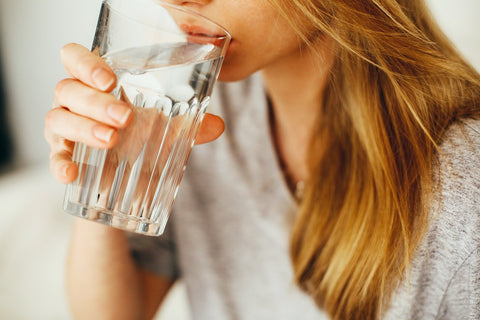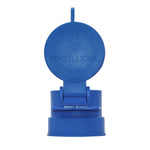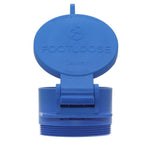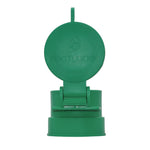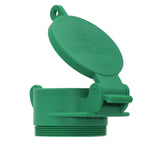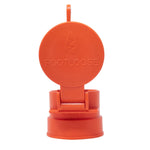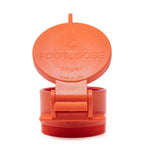You have no items in your shopping cart.
We take fresh, clean water for granted, but it can become a scarce resource if you don’t have the proper RV water filtration system while you’re on an extended road trip or traveling to remote areas. Having the right RV water filter is the key to ensuring that you stay healthy during your trip so you don’t have to change your plan or cut it short. Here’s what you need to know:
What’s an RV Water Filter?
RV water filtration removes chemicals, odors, sediment, microorganisms, bacteria, and more from the water before it comes out of your taps or shower. There are various filter types you can choose from (more on that later). Some are easier to install, while others provide better filtration capabilities or higher flow rates.
The Importance of Using an RV Water Filter
While water from campgrounds, creeks, or lakes could look clear enough for washing and cleaning, those bodies of water may harbor contaminants that can lead to adverse health effects, such as gastrointestinal illness, reproductive problems, and neurological disorders. RV water filters can help prevent water-borne diseases such as Giardia, Legionella, Norovirus, Shigella, Campylobacter, Salmonella, Hepatitis A, Cryptosporidium, and E. Coli.
The Benefits of RV Water Filters
Besides removing unwanted organic compounds in water from hookups at campsites or picnic areas, an RV water filtration system can help you prevent clogs or backups by getting rid of sediment and impurities. This will help you minimize repair costs associated with blockages or damage to the line. Not to mention, an RV water purifier can save you money in the long run because you don’t have to purchase drinking water.
Types of RV Water Filter Systems
There are different types of water filters for RV to meet different needs.
- Inline Filter This basic RV water filter attaches to your RV’s water tank and removes sediment, chemicals, odors, and bacteria from the water. It fits directly into an RV’s water entry point to filter all the water entering the vehicle’s fresh water tank. Despite its simplicity and convenience, it isn’t the most efficient water filtration for RV. As such, it’s typically recommended for occasional RV users.
- Compact/Standard Canister Filter This type of RV filter fits into the water hose connected to the vehicle’s water system. It forces incoming water through canisters that catch contaminants. You can switch filter cartridges based on your needs. Some of these canisters can also attach to faucets. However, these filters may slow down the flow rate.
- Jumbo Canister Filter These filters function just like standard canister filters but offer higher flow rates. The larger size and surface area also means that you don’t have to replace the cartridges as often. These are great for serious adventure travelers who may go “off the grid” for an extended period.
- Reverse Osmosis Filter These RV water purifiers effectively eliminate sediment, odor, chemical, etc. but are the most expensive option. These filtration systems also remove minerals in the water, which are essential to various metabolic functions.
How to Choose Your RV Water Filter
Here are some key features to consider when choosing your RV water filtration system:
- Filter size: this can impact the amount of water the filter can process in a given amount of time. While larger filters can do the job faster, they take up more space. Also, the more canister an RV filtration system has, the quicker it works. However, that also makes it larger and more costly.
- Supply source: where you get your water can affect your choice of filter. For example, an inline filter is best for use with an outside source at a campground, while a compact canister is ideal for use with faucets.
- Quality of water to be filtered: an inline filter is typically sufficient for treating water from campgrounds or municipal sources. However, you may consider a reverse osmosis filter system if you plan to draw water from lakes, creeks, etc.
- Frequency of use: if you’re planning for a long trip, choose a high-quality RV water filtration system and stock up on filters. Keep in mind that the more people you have in the vehicle, the more frequently you’ll need to replace the filters.
- Cost: the price is often determined by a system’s filtration power, which affects the time it takes to filter the water. Some RV water filters have the capabilities to filter out more disease-causing microorganisms than others, so they tend to be more expensive.
Best RV Water Filters
Besides the factors above, you should also consider RV water filter reviews and seek out recommendations from people who use the system similarly as you plan to. Here are some of the best RV water filters in the market:
Clearcourse Premium RV Water Filter System
This top-of-the-line heavy-duty RV water filtration unit features 0.2-micron protection against contaminants. It’s simple to use and can be attached to any RV hose quickly. The durable metal chassis means you don’t have to worry about bumps and scratches.

However, this RV water filter system is one of the priciest options. It’s also on the heavier and larger side, and the replacement cartridges cost more than its competitors’.
Camco TastePURE Water Filter
This inline RV water filter offers great bang for your buck. Although it’s small, its wide body is designed to enhance the flow rate. The 20-micron carbon filter removes bacteria, sediment, chlorine, and other chemicals from the water.
Some users report that the water that comes out initially tastes bad. To prevent this issue, run the tap for a minute each time before drinking the water.
Culligan RV-800 Water Filter
Another popular option, this inline RV water filter cleans up to 2,000 gallons of water and is easy to connect to RVs, boats, and camper units. It has a built-in bacteriostatic filter designed to reduce bacteria, bad taste, odor, chlorine, and sediments.

Some RV water filter reviews say that the water flow is slower than in other products and that the hose attachment is prone to damage.
There are many high-quality RV water filtration systems on the market. Installing one that meets your needs, such as filtration capabilities, budget, and flow rate, can ensure that you have safe and healthy adventures for years to come.


